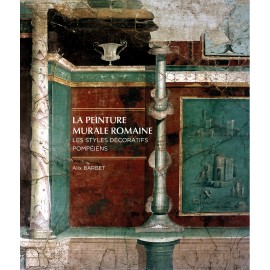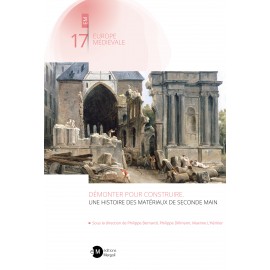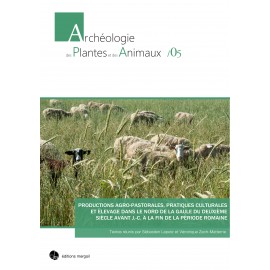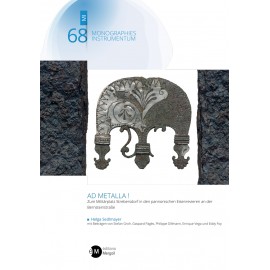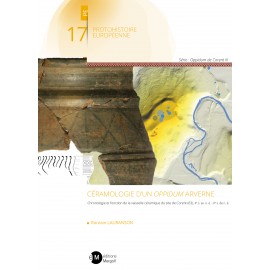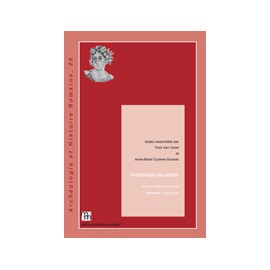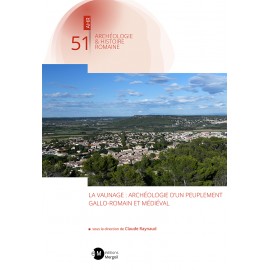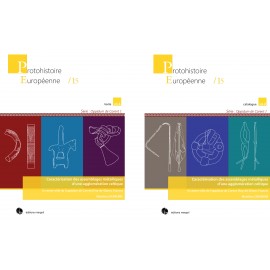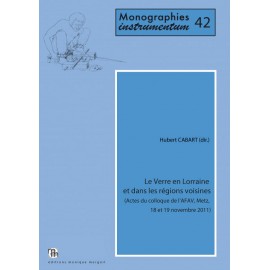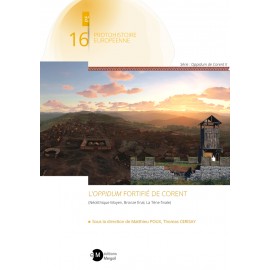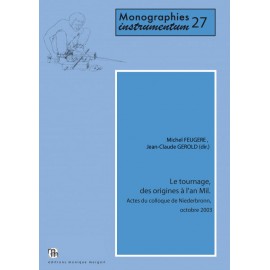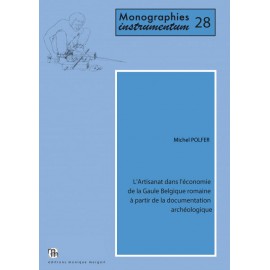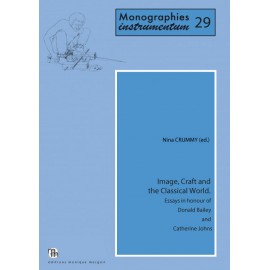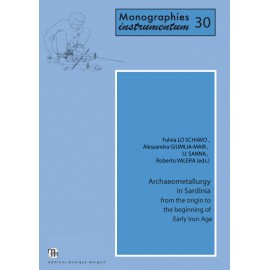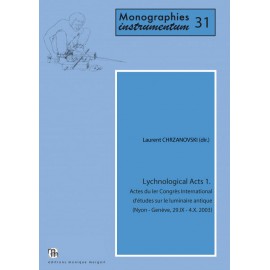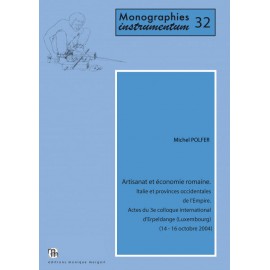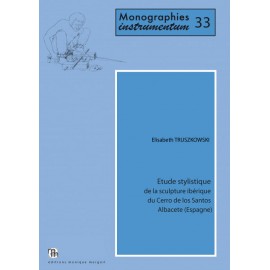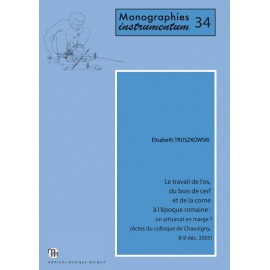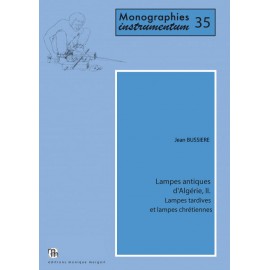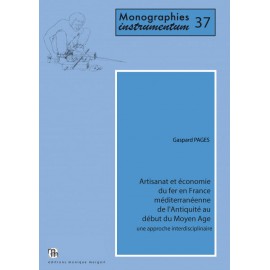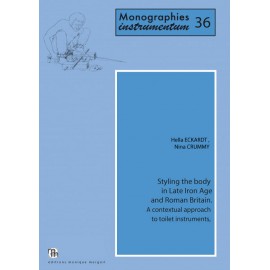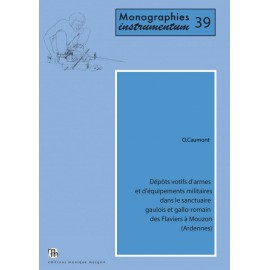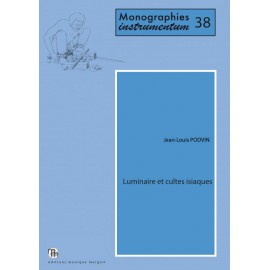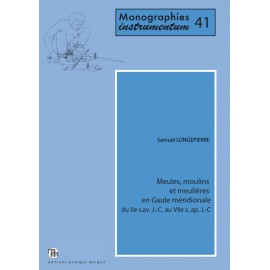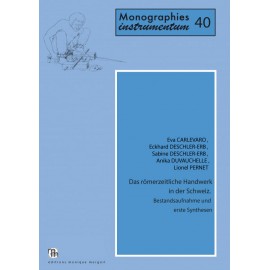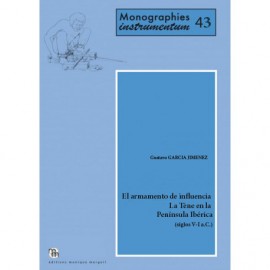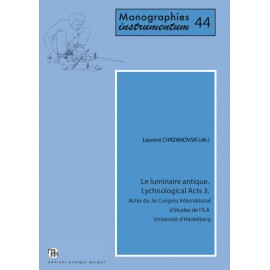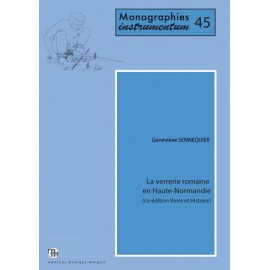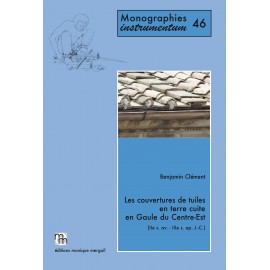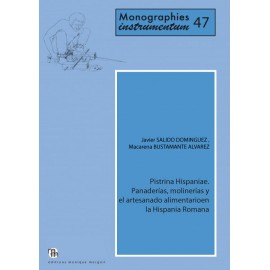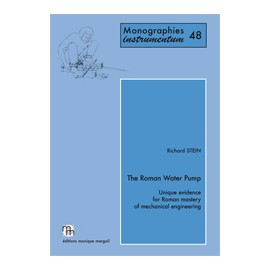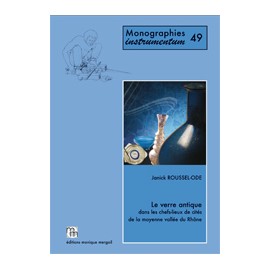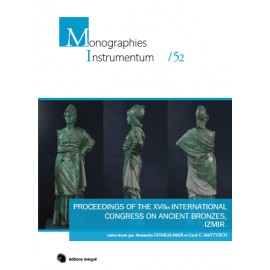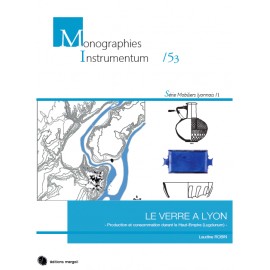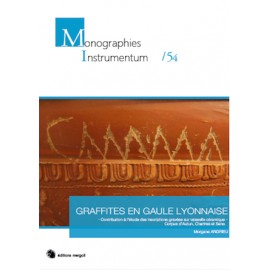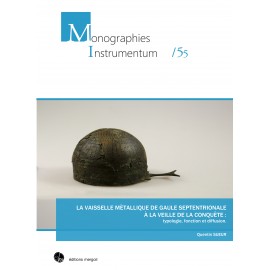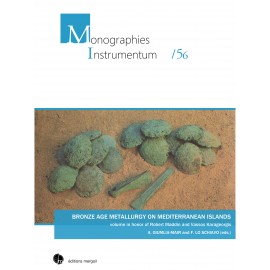Aucun produit
Les prix sont TTC
Produit ajouté au panier avec succès
Il y a 0 produits dans votre panier. Il y a 1 produit dans votre panier.
Monographies Instrumentum
- Archéologie et Histoire Romaine
- Archéologie Moderne et Contemporaine
- Archéologie des Plantes et des Animaux
- Archéologie du Paysage
- Archives & Histoire de l'Archéologie
- Europe Médiévale
- Monographies Instrumentum
- Préhistoire
- Protohistoire européenne
- Protocoles d'étude
- Hors collection
- Les cahiers de saint-michel de Cuxa
- Livres d'occasion
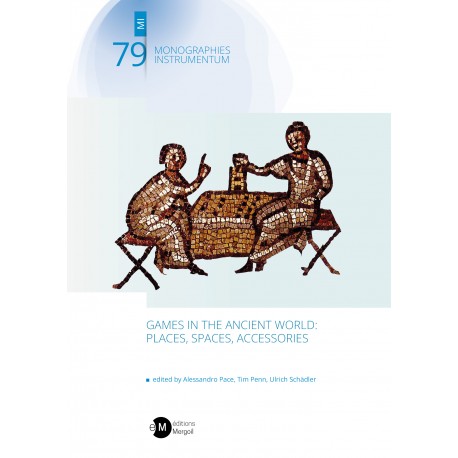 Agrandir l'image
Agrandir l'image GAMES IN THE ANCIENT WORLD: PLACES, SPACES, ACCESSORIES
MI-79
Neuf
MI-79. Games in the ancient world: Places, Spaces, Accessories.
edited by Alessandro Pace, Tim Penn, Ulrich Schädler, 2024, 380 p., ill. coul. (ISBN : 978-2-35518-145-0).
diffusion : Editions Mergoil.
Published with the support of the European Research Council (ERC) as part of the ERC Advanced Grant « Locus Ludi.
The Cultural Fabric of Play and Games in Classical Antiquity » under the European Union’s Horizon 2020 research and innovation programme (grant agreement # 741520)
En savoir plus
résumé
Jouer dans le monde antique : lieux, espaces, accessoires explore l’histoire des jeux et des objets qui leur sont associés dans l’Antiquité classique et au-delà au travers de témoignages matériels.
Le volume réunit une série d’études présentées lors de colloques organisés par le projet ERC Locus Ludi (#741520) ainsi que d’autres contributions. Un large éventail de cas met en lumière la diversité culturelle des comportements dans l’espace et le temps. Ces études révèlent l’étendue géographique et chronologique des pratiques ludiques, de l’Égypte pharaonique à la Grande-Bretagne romaine et à la périphérie celtique du haut Moyen Âge. Malgré l’abondance de témoignages, le matériel conservé est souvent fragmentaire et dispersé, occulté par la perception occidentale moderne des jeux comme des passe-temps futiles. En déconstruisant la complexité des pratiques ludiques antiques, cet ouvrage met en lumière l’intersection des jeux avec la vie sociale, culturelle et religieuse dans l’Antiquité, et livre une perspective nouvelle sur un aspect jusqu’ici négligé de l’histoire humaine.
CONTENTS
Introduction
Where the study of games comes from…
Véronique Dasen & Ulrich Schädler.
More than just fun and games: the past, present, and future of the materiality of play
Tim Penn, Alessandro Pace & Ulrich Schädler.
A community of players. Board games at Deir el-Medina (Egypt)
Marie-Lys Arnette.
Games boards from Hellenistic Period Maresha: Predicting the future or simply passing the time?
Ian Stern.
Computational approaches for recognising and reconstructing ancient games: The case of ludus latrunculorum
Walter Crist, Éric Piette, Dennis J. N. J. Soemers, Matthew Stephenson & Cameron Browne
Su alcune tavole lusorie dai Fori Imperiali
Luca Dal Monte.
Games and gaming in southwestern Asia Minor
Peter Talloen.
Gaming in the Place of Palms at Aphrodisias
Ben Russel, Angelos Chaniotis & Andrew Wilson.
Roman, Byzantine, and Medieval Games in Ephesus: preliminary survey results
Ulrich Schädler.
Europe’s playful frontiers: Roman board games in the Barbaricum, from Britain and across the Rhine and Danube lands
Ulrich Schädler & Mark A. Hall.
The Iberians played too
Raimon Graells i Fabregat & Miguel F. Pérez Blasco.
The gaming material from Empúries, Catalunya
Ilaria Truzzi.
Le mobilier de jeu antique dans l’habitat de la cité de Nîmes
Yves Manniez.
Wrote for luck? Unofficial literacies and gaming counters from Roman Britain
Natasha Harlow.
Casino at Coria? Evidence for gaming at Roman Corbridge
Frances McIntosh.
On pegged gaming pieces (with particular reference to a Late Celtic set from Lough Sewdy, Ireland)
Mark A. Hall & Katherine Forsyth.
Spielen in Vindonissa. Spielsteine und Würfel im militärischen Kontext
Regine Fellmann Brogli .
Oggetti per il gioco di epoca romana: rinvenimenti in contesti archeologici in Lombardia
Chiara Bianchi.
Les jeux de Pompéi. Réflexions sur la culture matérielle ludique de la ville romaine
Alessandro Pace.
Did people play games in the countryside of Roman Italy?
Tim Penn.
Ritual offerings or divination tools? Objects for play from the Roman Republican sanctuary of Diana in Nemi
Francesca Diosono, Federica Grossi & Loredana Lancini.
Appendix I. Games in the Ancient World
Ulrich Schädler.
Appendix II. A guide to recognising carved pavement signs in the Greek and Roman World
Alessandro Pace, Tim Penn & Summer Courts.
AUTEUR.E.S / AUTHORS.
RÉSUMÉS / ABSTRACTS.
Auteurs :
Marie-Lys Arnette, Chiara Bianchi, Cameron Browne, Angelos Chaniotis, Summer Courts, Walter Crist, Luca Dal Monte, Véronique Dasen, Francesca Diosono, Regine Fellmann Brogli, Katherine Forsyth, Raimon Graells i Fabregat, Federica Grossi, Mark A. Hall, Natasha Harlow, Loredana Lancini, Yves Manniez, Frances McIntosh, Alessandro Pace, Tim Penn, Miguel F. Pérez Blasco, Éric Piette, Ben Russell, Ulrich Schädler, Dennis J. N. J. Soemers, Matthew Stephenson, Ian Stern, Peter Talloen, Ilaria Truzzi, Andrew Wilson.



